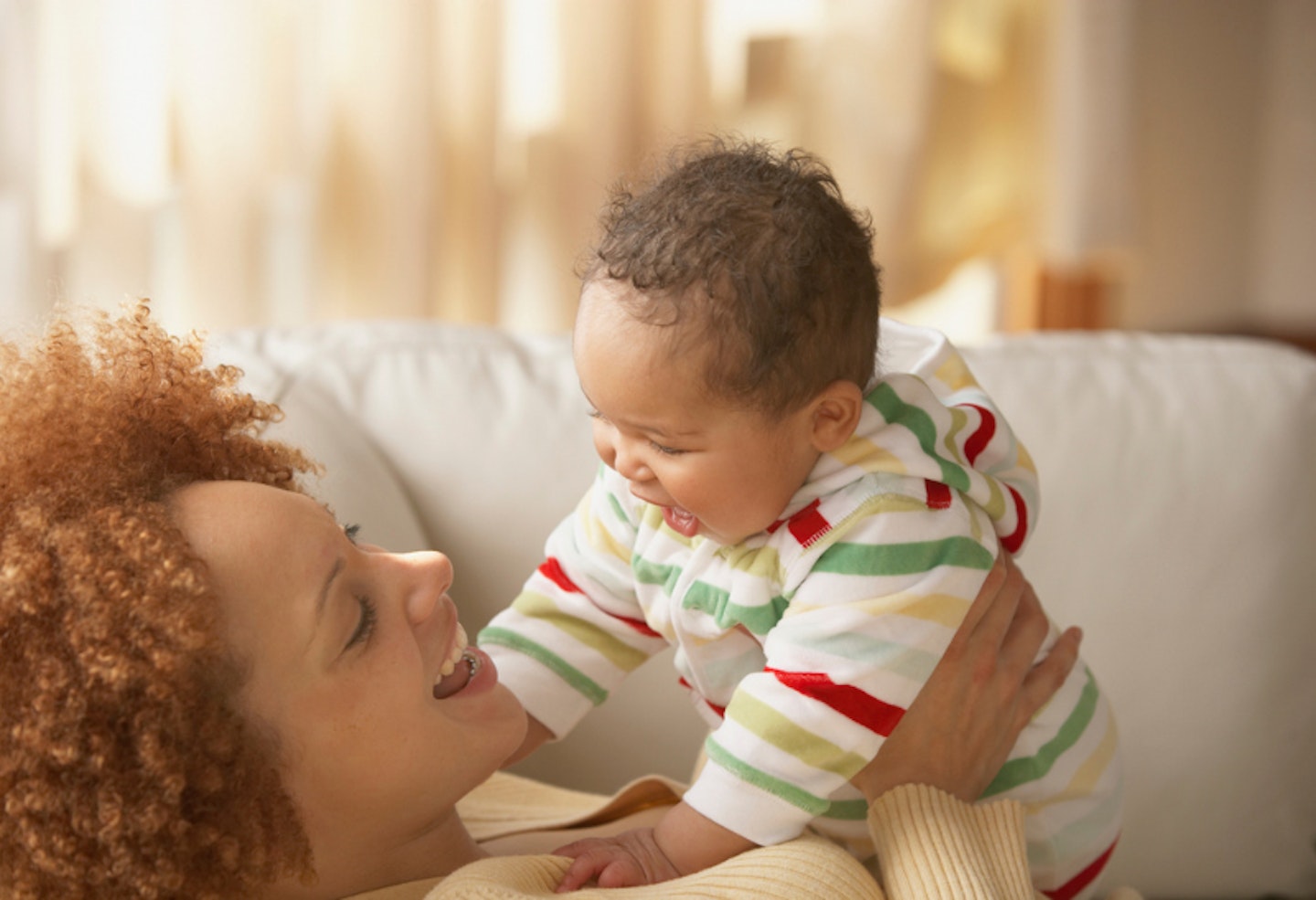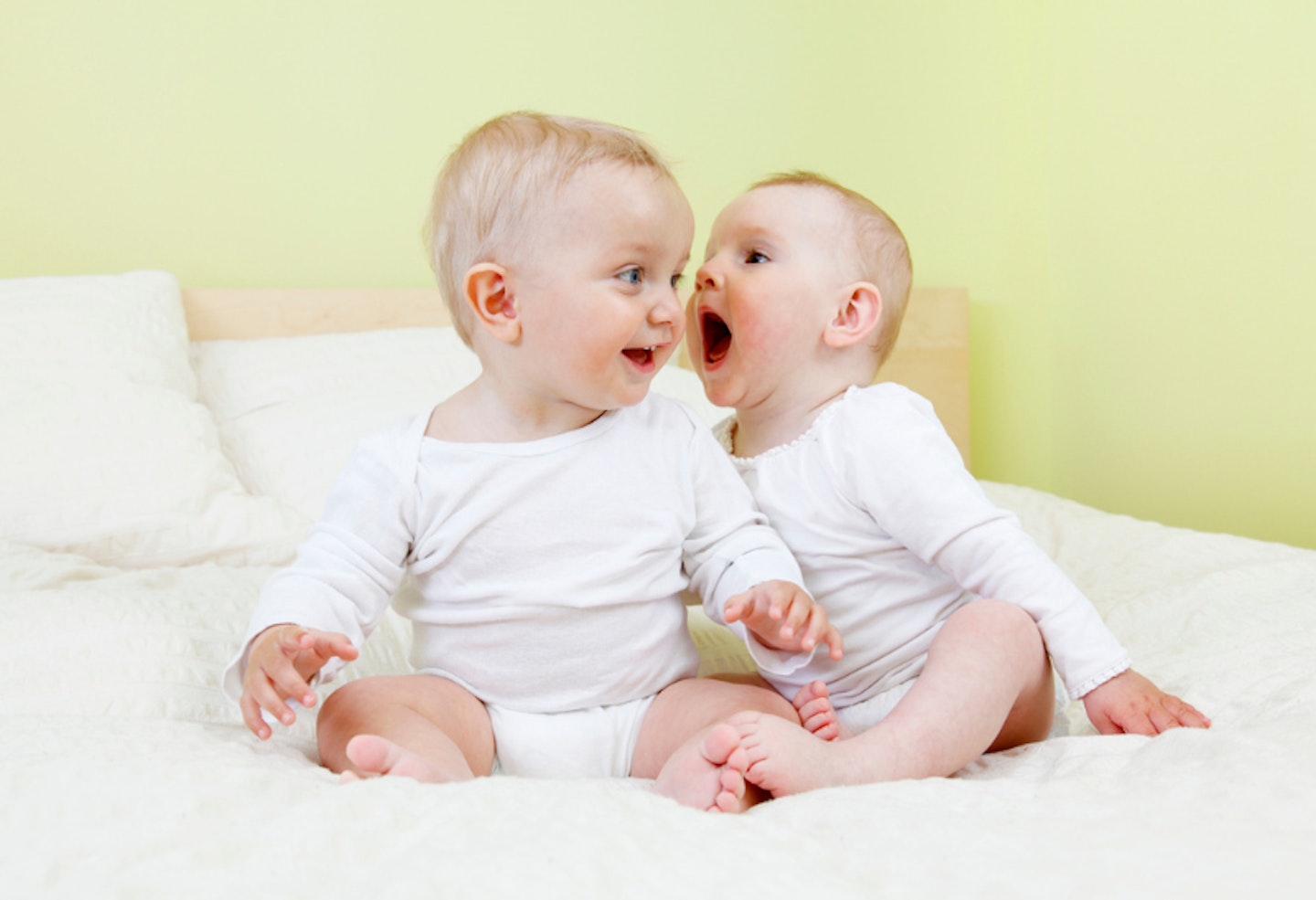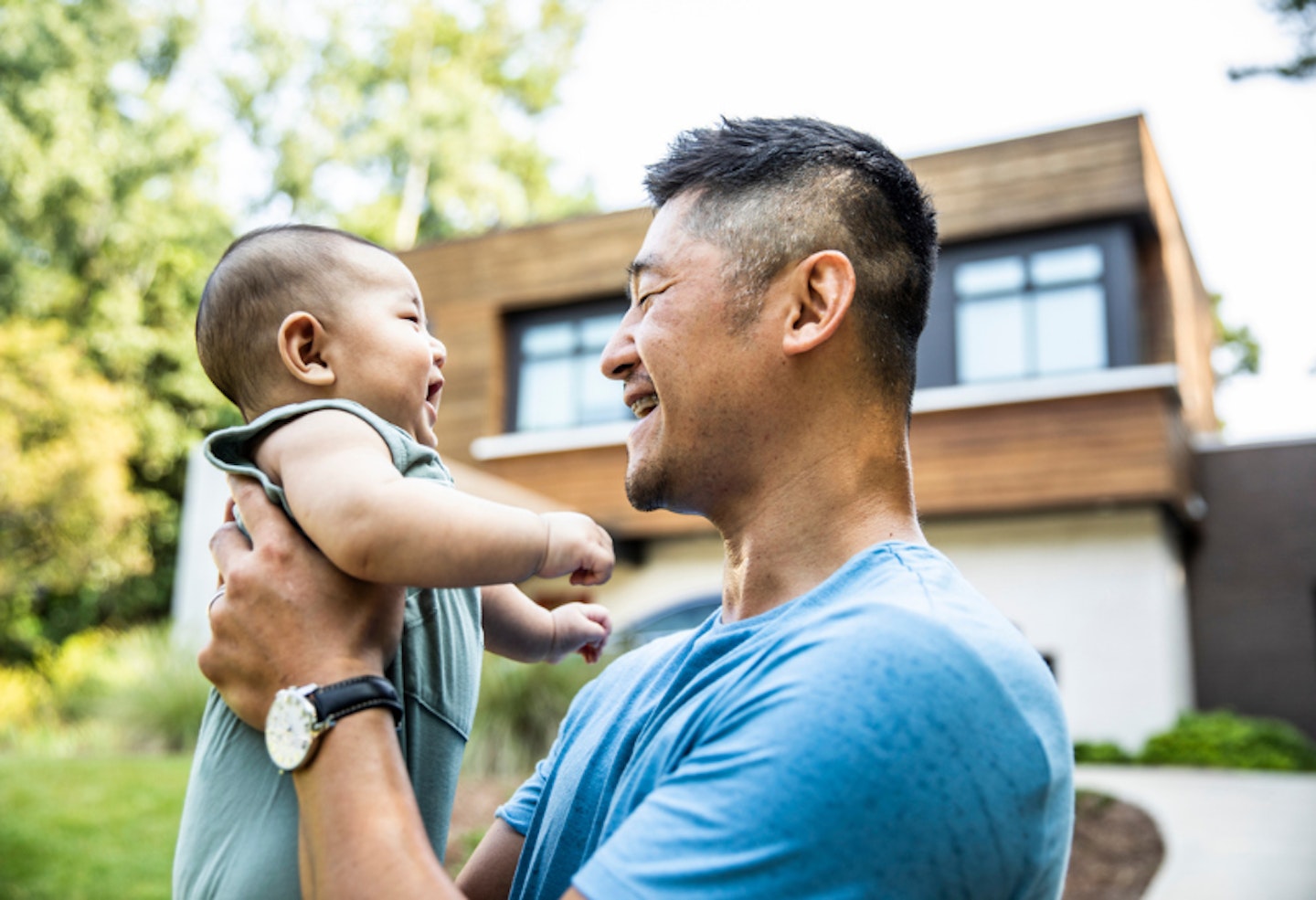There are so many special milestones when you have a baby, but their first words have to be up there near the top of the list. It is amazing when, after months of communicating without words, they suddenly say something (sort of!) recognisable. Whether their first word is mum, or dad, or even cat or dog, it is a moment of great excitement. But what does it mean?
We love that adorable baby babble, but is your little one really trying to say words or simply experimenting with all the fun sounds they can make? Babies start talking at various ages, but typically you can look out for that first special word at about one year old. You can try to encourage your little one to speak by cooing at your baby, and they may try to copy you

Why are babies first words important?
Of course your little one's first word is exciting because it is the start of a whole new chapter together, where you will eventually be able to talk to each other. Up until this point, babies communicate with crying primarily, but also that cute babble with cooing, squeals, growls and even raspberries. But are they important?
Yes, they are! A recent study from the University of Alabama suggests that babies do practise vocal control before they can speak, in particular using squeals and growls in clusters. In the study in the Plos One journal, the team say about clustering that it, "often seems playful, and one cannot avoid wondering if it might constitute practice." They continue commenting that, "clustering can be observed in that a baby may produce several squeals in a short period of time, and then for the next few minutes no squeals at all, while other vocal types continue to be produced. Also, from day to day there appear to occur wide variations in the number of squeals babies produce. Similar clustering has been observed for growls and other less frequently occurring sounds such as raspberries or whispers."
Dr Ed Donnellan, from the University of Warwick, writes in The Guardian, with reference to the study, that, "even though the noises that were looked at – squeals and growls – are not necessarily ones we use in language, this play could allow infants to develop their control over the sounds they make, which is crucial for later spoken language."
It seems that all those adorable baby babbles may be practise for speech, and while you think your little one is simply babbling they are working hard to communicate with you and there is meaning to the sounds they make which makes them important (and still very cute!)
When they do say that first word, that is extremely important too, as Dr. Amanda Gummer, a child psychologist and founder of The Good Play Guide, says, "first words are important as they mark the beginning of verbal communication and the beginning of the child’s development and understanding of language. These early words that are spoken are essential to help build relationships as they often include names or references to those family and friends closest to the child. The positive reinforcement from parents which usually follows is also important as this in turn boosts the child’s confidence in making sounds and using those words."
What counts as a baby's first word?
Your little one will make lots of sounds and noises as they practise their vocal skills, however, while you might recognise some sounds - was that mama? or dada? - it is hard to know if they are really a baby's first word, or just a coincidence. LoveVery says that a baby will typically say their first word between 12 and 14 months and by the age of 15 months might have 1 - 3 words they can use. But what counts at their first word? Speech and language therapist, Janet Cooper, writing for the BBC, says that parents should be "less concerned with children making exactly the right sounds and more with them giving sounds meaning." She continues with the example, "it may be that they make a sound along with pointing at something. If they use that sound consistently, then even if it’s not clear, it’s a symbol for the object the child wants and this should be classed as a word." Therefore, it may be that your little one's first word isn't instantly recognisable but if they keep repeating it, and especially if they keep repeating it along with an action, for example, pointing at you or even the cat, then that should count as their first word.
Dr Amanda Gummer, adds, "first words don’t have to be of perfect pronunciation but should be consistently used to refer to one thing. Any consistent sound used to represent a specific person or object can be classed as a word. For example “wawa” for water, if consistently used, can be considered a first word. "

What are the most common first words for a baby?
We would all love for our baby's first word to be 'mumma' and sometimes it is, but there are lots of things they can say first and according to Toddler talk some of the most common first words include:
•Mumma
•Dada
•Papa
•Ball
•Bye
•Uh-oh
•Hi
•No
•Dog
•Bottle
•Baby
•Woof woof
•Banana
•Bubble
•Milk
Typically a baby's first word is influenced by their environment and the things around them and the things they see most. It also depends how easy a word is to say. Janet Cooper suggests, "the easiest words babies can make involve ‘lips together’ sounds, or sounds where you put the tongue on the bumpy bit behind the top teeth." When babies babble they often repeat sounds and these eventually develop into words, for example, repeating syllables like 'da' over and over will eventually become 'dada.' Dr Amanda Gummer also suggests, "this is because they are generally simple and repetitive sounds that a baby is likely to hear a lot, associated with the closest people around them."
Why is 'dada' often a baby's first word?
Some mums are often frustrated that 'dada' is a baby's first word, and wish they would say 'mama' first. Valerie Fridman, a linguistics professor, writing in Psychology Today, suggests that dada may be easier to say, commenting that, "sounds including "d," "t," "p" and "b" are referred to as "oral sounds." Meanwhile, "m" is more nasal, as air flows through the nose when it's uttered. Babies have the ability to babble both oral and nasal sounds, but tend to favour oral."
Another suggestion, is that during the first year of life babies don't see themselves as separate from their mum and dad is the first person they recognise outside of the mum-baby bond, hence why 'dada' is sometimes a baby's first word.
How to encourage a baby's first word
Babies reach different milestones at different ages, such as learning to crawl, taking their first steps, and saying their first word, it won't be the same for every child. However, while playing with your little one there are a few things you can do to help encourage their first word and help them develop those cute baby babbles intotoddler talk.
-
Face to face: When talking to your little one get face to face so they can see the movements of your face.
-
Pause: Always leave a pause between sounds you make with your baby so it gives them chance to respond to you. If you make a sound, or say a word, and your baby is watching, pause and see what they do.
-
Copy each other: Babies love mirroring and like to copy what you do. If you stick out your tongue, your baby might try to do the same. The same is true with babble and words, a baby might try to copy the sounds you make.
-
Follow their lead: When your little one makes a definite sound and maybe even points at something while doing it, you can do the same. Give your little one your attention and repeat what they are saying, and point and see what they do, or say, 'yes, that's a ball' for example.

Baby babble is undeniably cute and as parents it is a delight to hear our little one making sounds and possibly practicing for the day when they say their first word. Whether or not we can understand what they say, it is a form of communication and you can engage with your baby's babble. Dr Amanda Gummers says, "first words will signify a child’s growing understanding of their environment and their relationships with these people, the closest to them." Therefore, regardless of what they say, or when, it seems that those first sounds do have meaning and are the first building blocks of your child's speech, as they learn to make different sounds and get ready to utter their first word and communicate with you on a different level.
About the expert
Dr. Amanda Gummer has a PhD in Neuropsychology, a Postgraduate Certificate in Higher Education and over 20 years’ experience working with children and families. Having worked in children’s industries for many years, Amanda can regularly be seen in the media, including BBC News, Sky News, The Daily Mail and many more, offering advice on news stories and issues surrounding children, families and child development.
Laura Healy is a Commercial Content Writer for Mother&Baby. She is a mum-of-two girls and loves writing about all things parenting, she is particularly interested in the toddler years and eco-friendly baby products, as well as children’s literature. She has a PhD in Creative Writing and has published short stories in the UK and Ireland, as well as previously writing freelance for her local paper.
